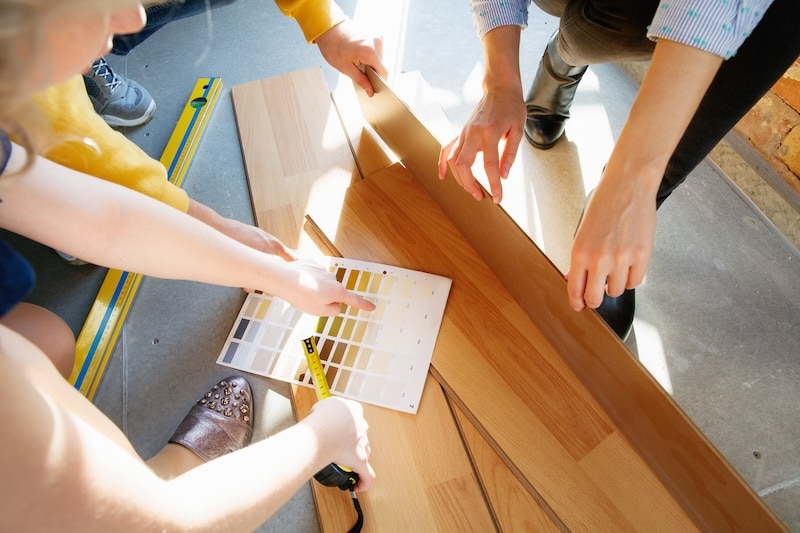Building Your Dream Custom Home: A Detailed Guide
Creating your own custom home is an exciting journey that lets you tailor your living space to your exact preferences and needs. This comprehensive guide walks you through every step from start to finish, ensuring your home-building experience is both exciting and efficient.
Getting Started: Pre-Qualification, Pre-Approval, and Site Selection
1. PRE-QUALIFICATION:
This is generally a simple, initial step in the mortgage process. You provide a financial overview to a lender, including your income, assets, debts, and sometimes a credit check. This free service sets the groundwork for your budget and home size.
2. PRE-APPROVAL:
This is a more comprehensive and formal step. It involves completing an official mortgage application and providing the lender with necessary documentation to perform an extensive check on your financial background and current credit rating to determine precisely how much the lender is willing to loan you, and at what interest rate.
3. CHOOSING YOUR HOMESITE:
Pick a lot or neighborhood within your budget that suits your needs. Ensure the lot site aligns with the square footage and budget requirements of your home plan.
Choosing Your Builder and Designing Your Home
1. SELECTING A BUILDER:
The choice of builder is crucial in determining the quality of your custom home. Research builders known for their quality and experience in constructing the type of home you desire. Prioritize builders who participate in programs like BUILT TO SAVE®, ENERGY STAR®, or AEP Texas High-Performance Homes, as these indicate a builder’s commitment to superior construction standards.
2. CONCEPTUALIZATION AND PLANNING:
Work with architects and designers to turn your vision into actionable plans. Most builders offer design services inhouse. A deposit may be required to start this phase.
Financing and Budgeting
1. BUDGETING:
After finalizing your design, establish a realistic budget. Include construction costs and additional expenses like permits and utilities. When working on your budget, keep in mind home ownership costs such as property taxes, homeowner’s insurance, landscaping, HOA fees, and new furniture.
2. FINANCING:
Explore financing options such as construction loans, which convert to permanent loans upon completion, or one-time close loans that combine both phases into a single transaction and can save you money on closing costs. Consult with your lender to choose the best option for you.
Compliance and Construction
1. BUILDING CODES AND PERMITS:
Ensure your builder secures all necessary permits and adheres to local zoning and building codes. Non-compliance can lead to delays and legal troubles. Opt for builders who guarantee compliance with state energy codes as part of reputable high-performance home programs.
2. INSPECTIONS:
Local municipal code officials will check the construction regularly to ensure adherence to safety and health standards, as well as compliance with minimum code requirements. High-performance home programs require specific inspections during construction by independent energy Raters, plus testing when the home is completed to confirm superior energy efficiency and give the home a certificate stating this.
Choose a BUILT TO SAVE® certified Builder
For a list of certified BUILT TO SAVE® builders, you can visit www.BuiltToSave.org
Personalizing Your Home
1. CHOOSING FINISHES AND FIXTURES:
As construction progresses, you’ll select personalized elements such as flooring, paint, cabinetry, and lighting. These decisions will define the character and uniqueness of your home, keeping in mind your budget or builder allowances.
Final Stages: Closing and Moving In
1. INTERIM CLOSING:
You’ll sign off on the construction loan to begin the building process, which can take 3 to 6 months, depending on the complexity of your home.
2. FINALIZING FINANCING:
As the construction wraps up, prepare to convert your construction loan into a traditional mortgage. Gather recent financial documents for the lender to finalize the loan.
3. PRE-CLOSING WALKTHROUGH:
Here is where you will conduct a detailed walkthrough with your contractor to identify any issues that need resolution before finalizing.
4. FACILITATING CLOSING:
The title company plays a pivotal role in coordinating and facilitating the closing process. They ensure that all necessary paperwork is completed correctly, that all legal requirements are met, and that the deed is properly recorded with local authorities. This meticulous attention to detail is crucial to avoid complications and makes the entire process of buying and building your custom home smooth, legally compliant, and free from unexpected financial or legal problems.
5. MOVING IN:
At last! Now you will sign the necessary paperwork, finalize the transaction, and celebrate the achievement of building your custom home. It’s time to move in and start a new chapter in your life!
Building a custom home is a detailed process that involves careful planning, securing financing, and close attention to every construction detail. By engaging the right professionals and making informed decisions, you can make your homebuilding process a rewarding and memorable experience, culminating in a home that perfectly suits your vision and lifestyle.
New Homes Guide Magazine
The latest new home trends, up-and-coming neighborhoods, and more.
© RGV New Homes Guide, 2024. Unauthorized use and/or duplication of this material without express and written permission from this site’s author and/or owner is strictly prohibited. Excerpts and links may be used, provided that full and clear credit is given to RGV New Homes Guide with appropriate and specific direction to the original content.








